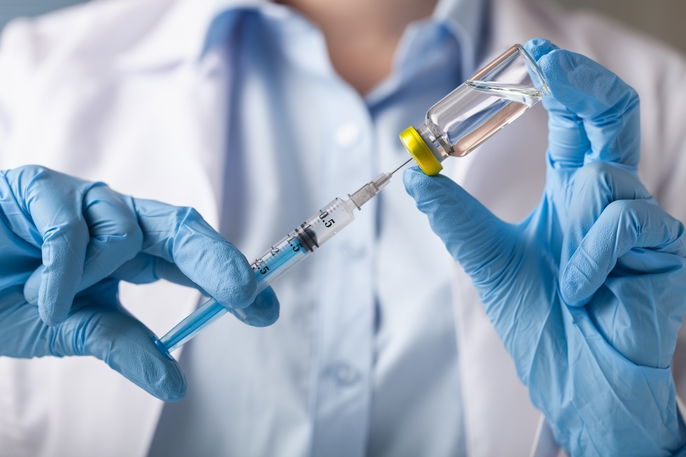The dengue vaccine is indicated for the prevention of dengue fever in children, adolescents or adults. It can be given to patients aged 4 to 60 years old, who have been infected by at least one of the dengue serotypes in the past and who live in areas where this infection is more common.
There are two types of dengue vaccine on the market: Dengvaxia and Qdenga, although Qdenga is not yet FDA approved. These are produced using the recombinant DNA technique and which protect against serotypes 1, 2, 3 and 4 of the dengue virus.
These vaccines can be obtained at the pharamacy with a prescription, and administered by a doctor or nurse subcutaneously.

Who can take it?
The dengue vaccine is recommended for the prevention of dengue fever in the following cases:
- Dengvaxia, for people aged 6 to 45 who have previously had dengue fever (which requires confirmation by laboratory tests), and who live in areas where this disease is more common;
- Qdenga, for people aged 4 to 60 who have never had dengue fever or who have previously had dengue fever, without the need for laboratory tests to be vaccinated. However, it is recommended that people who have recently had dengue fever to consult their doctor before having this vaccine, as it may be necessary to wait a few months to get vaccinated.
Dengue vaccines can help prevent infection or severe forms of dengue fever, like hemorrhagic dengue fever, caused by the four serotypes of the virus: 1, 2, 3 and 4.
Also recommended: Dengue Fever Medications: 5 Medicines to Take for Symptoms tuasaude.com/en/dengue-fever-medicationsHow it works
Dengue vaccines are produced using recombinant DNA technology, meaning it is a live vaccine that contain attenuated serotypes 1, 2, 3 and 4 of the dengue virus. These are capable of stimulating a response from the immune system without infecting the person, as the virus is weakened and its activity is reduced.
When the vaccine is administered, it is capable of stimulating the immune system to produce antibodies to fight the disease more quickly.
Also recommended: What to Eat & Avoid for Dengue Treatment (w/ 3-Day Meal Plan) tuasaude.com/en/foods-that-can-speed-up-recovery-from-dengueHow to take it and doses
The doses of the dengue vaccine depend on the type of vaccine administered:
These vaccines should be prepared and administered subcutaneously in the arm by a doctor, nurse or other trained health care professional.
Possible side effects
The possible side effects of the dengue vaccine include headache, muscle aches, general malaise, weakness, fever and reactions at the injection site, like redness, itching, swelling and pain.
Other possible side effects are upper respiratory tract infections, loss of appetite, irritability, drowsiness, nausea, vomiting, dizziness, swelling near the injection site, sore throat, flu-like symptoms such as a runny or stuffy nose, or coughing.
Dengue vaccines can also cause severe allergies with symptoms that may begin immediately after the injection, such as difficulty breathing, a feeling of a closed throat, swelling in the mouth, tongue or face, and/or red and swollen lesions on the skin. Therefore, these vaccines should only be administered by a health professional, so that first aid can be provided immediately if needed.
Contraindications for use
The dengue vaccine should not be taken in the following situations:
- Suspected or confirmed pregnancy;
- Breastfeeding;
- Allergy to vaccine components;
- Moderate to high fever;
- Acute illnesses;
- Use of systemic corticosteroids in high doses;
- Treatment with chemotherapy or radiotherapy;
- Leukemia or lymphoma;
- HIV infection with symptoms;
- HIV infection without symptoms, but showing weakened immune system function in blood tests;
- Children under 6 years of age and over 45 years of age (Dengvaxia vaccine);
- People who have never had dengue fever (Dengvaxia vaccine);
- People who have phenylketonuria (Dengvaxia vaccine);
- Children under 4 years of age and over 60 years of age (Qdenga vaccine).
In addition, women who are planning a pregnancy should wait at least 1 month after taking the dengue vaccine to get pregnant.
Because this is considered to be a live vaccine, the dengue vaccine should also not be administered to those who are immunosuppressed or have a weakened immune system, as it can cause serious infection.






























